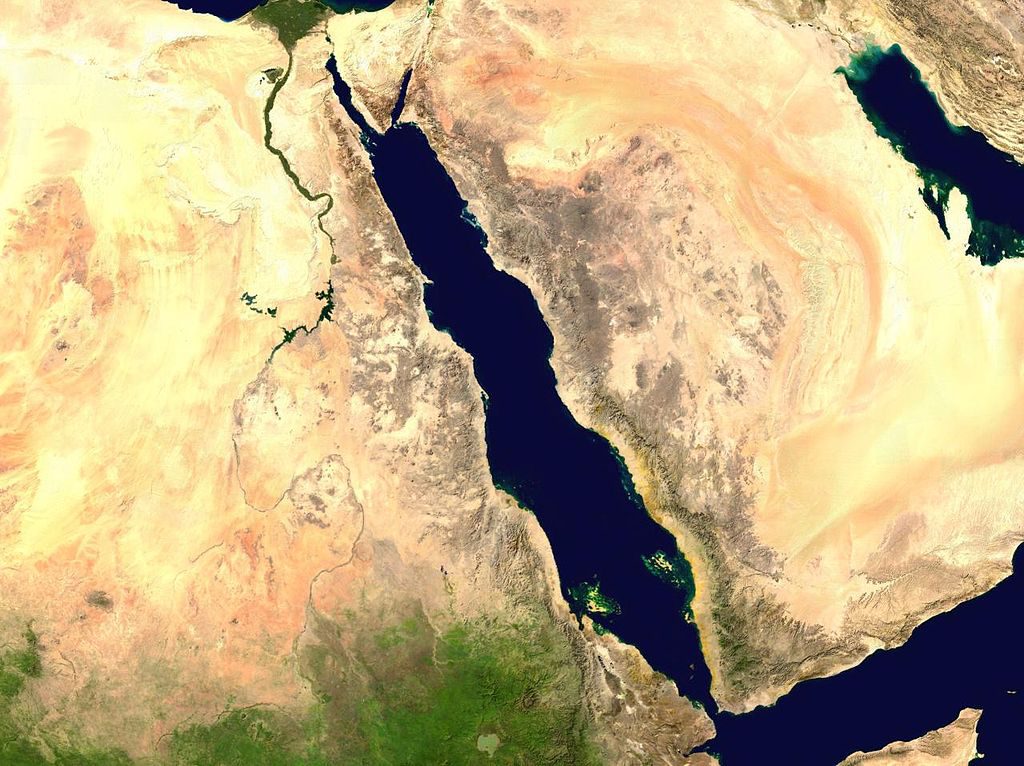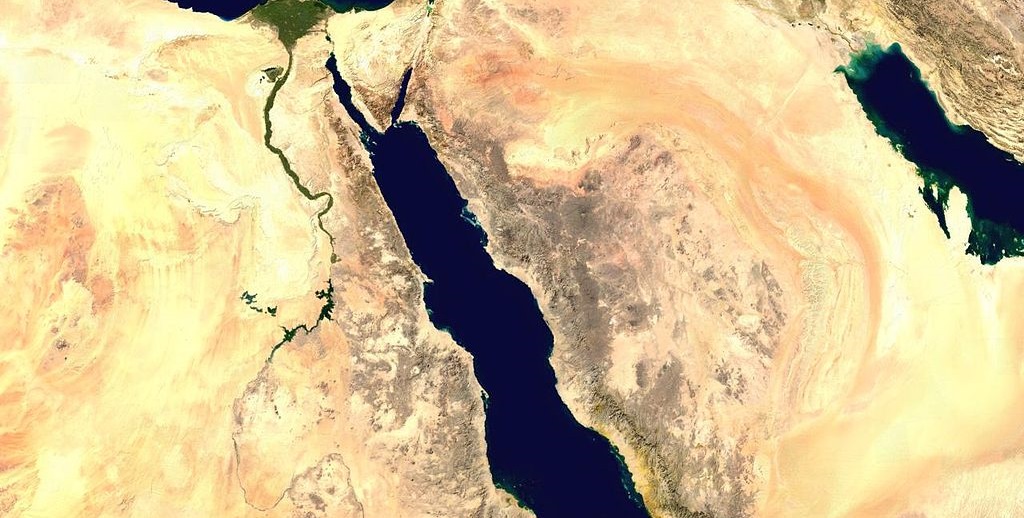
Satellite view of the Middle East [Photo: NASA]
Climate change is affecting us all – but some parts of the world will probably bear a far bigger burden than others. A recent study published in the journal Climate Change shows that rising temperatures in the Middle East and North Africa are likely to exceed 2 degrees Celsius by the end of the century, even if the global mean temperature remains below this threshold.
At the same time, research from the Massachusetts Institute of Technology shows that parts of the Middle East may become uninhabitable due to rising temperatures. Although the Middle East would be unduly affected by a warming climate, the consequences would stretch beyond the region. Europe, for example, may bear the brunt of increased outflows of environmental refugees.
Perhaps the biggest impact of climate change on the region will be on its water supply. According to World Bank data, the Middle East and North Africa have some of the smallest per capita water resources in the world, and with high population growth and declining oil revenues in many countries, this scarcity is likely to increase. For decades, the oil-rich Gulf states have been averting water shortages by running expensive, energy-intensive desalination plants, and buying agricultural produce from more fertile countries, such as Ethiopia and Kenya.
Although these solutions may not have been sustainable in the long run, given their cost, the fiscal woes facing many of the Gulf monarchies today make water security an even more pressing issue. Similar water shortages are expected in other parts of the Middle East, and this could be a trigger for conflict in a region where water issues already affect interstate relations. Turkey, Syria, and Iraq have regularly been at odds over the Euphrates River’s water. Similar tension exists between Egypt and Sudan over the Nile, and between Israel, Lebanon, and Syria over the Jordan River. In most cases, the downstream countries have disputed the upstream states’ storing and directing water flow at will. A closer look at the Israeli-Palestinian conflict shows that water is nearly as important an issue as land. This was reflected in the 1995 Oslo agreement, which fixed the rights each party had over the aquifer that is the main source of fresh water for the West Bank.
Much of the Middle East is already arid, and as the amount of rainfall declines due to climate change, soil moisture is also likely to fall, adversely affecting agriculture. Nearly two-thirds of the region’s agriculture is rain dependent, making it vulnerable to any further drop in precipitation. A recent study by NASA revealed that between 1998 and 2012, Turkey and the Levant region – which includes Lebanon, Syria, Jordan, and Israel/Palestine – faced its worst drought in 900 years. Such climate conditions are reducing the already limited amount of cultivable land, leading to greater reliance on imports. A shrinking agriculture sector, in turn, is likely to cause surging migration from rural to urban areas, putting strain on governments to create livelihoods for the new city dwellers.
The high food prices likely to result from lower domestic production may also present a challenge for governments in the region; we have already seen how unprecedented rises in food prices, unemployment, and rural-to-urban migration could have fueled the uprisings in Egypt and Syria.
The scale of these environmental challenges calls for chalking out a comprehensive strategy at the national as well as the regional level, and addressing unresolved transboundary water disputes. Bilateral or multilateral agreements, perhaps along the lines of the successful Indus Water Treaty, which has governed water relations of India and Pakistan since 1960, may be one solution. In that case, multilateral development institutions such as the World Bank or the UN Development Programme will have to play a key role, facilitating negotiations and supporting infrastructure projects to improve water management.
At the national level, institutionalizing climate change policy is of prime importance. Decision-making on water management is fragmented in many states, and several ministries often operate without sufficient coordination between them. For any national action plan to succeed, a single coordinating body must act as an umbrella for all the government bodies involved in the process. Another important gap is the unavailability of relevant technical data, which hinders impact evaluation of water management policies.
Innovation is the key for water sustainability in the region, but it will require major human and financial commitments. Some solutions include cultivating climate-resilient crops, designing robust urban centers that can better withstand a changing climate, and improving water demand management.
Water demand management involves differential water pricing by sector, so that consumers become aware of its value, and thus become partners in managing its scarcity. The aim is not to penalize consumers, but to incentivize better water management – however, such pricing reforms need to be part of a holistic policy framework, not introduced in isolation. Lessons can be drawn from Morocco, where its Large Scale Irrigation Improvement Project prices water to deal with its scarcity.
Meanwhile, Jordan has adopted an encouraging waste-water management technique, in which waste-water is treated and sent by gravity to farmers in the Dead Sea valley. In return, fresh water from the valley is pumped into Amman for public usage. Building on this innovative approach, Jordan launched another mega water management project last July, with a $9 million grant from the United Nations Framework Convention on Climate Change’s adaption fund. The project aims to improve rainwater collection and water treatment plant efficiency across the country.
Finally, it is imperative that governments in the region engage civil society and media to highlight the benefits of climate-friendly policies.
All this will entail substantial investments, but procrastination will likely only inflate the present cost. Early action and informed decision-making are crucial for the region’s economic well-being – and for peace.
